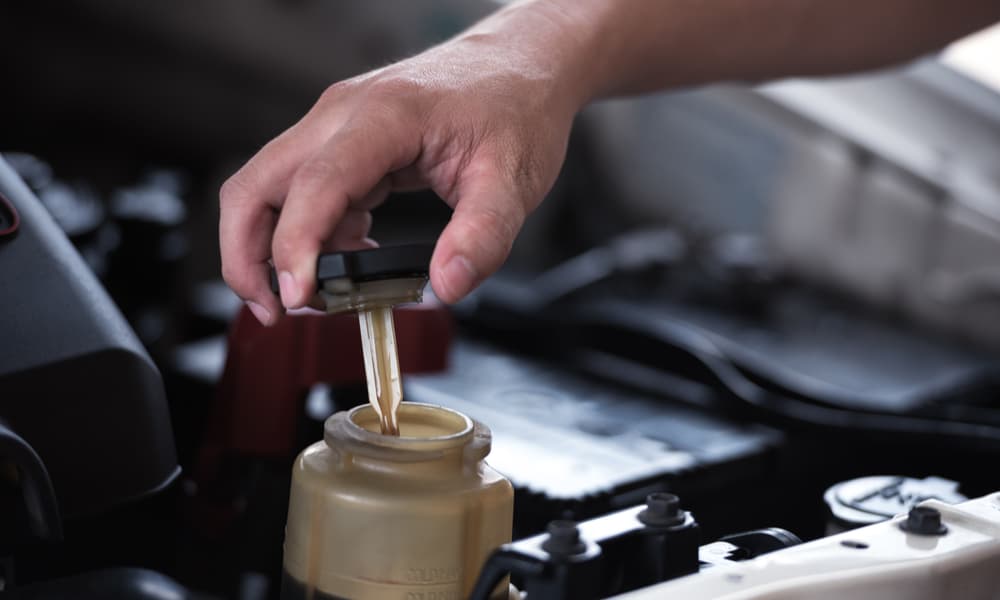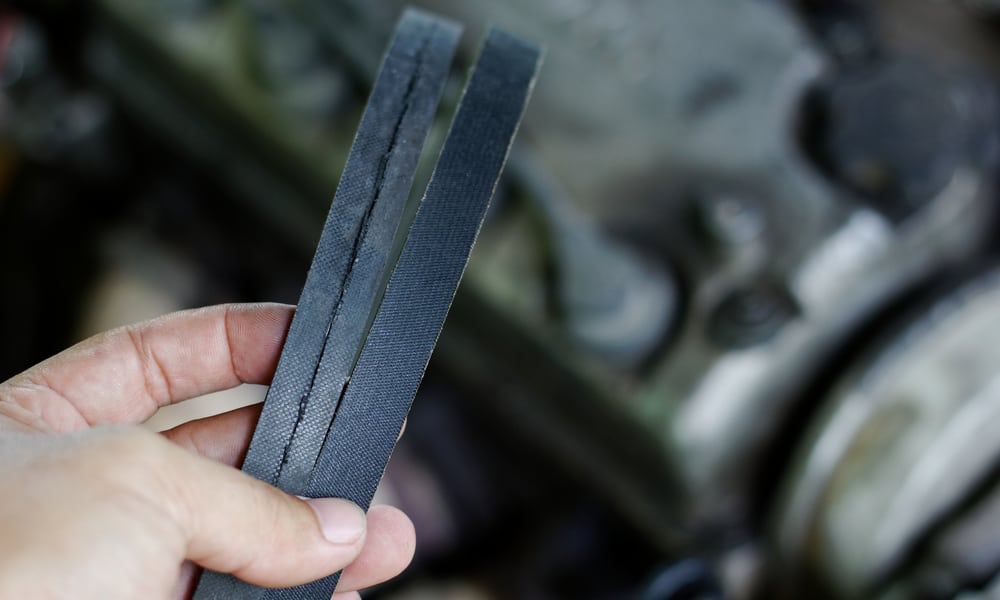Most car owners know that familiar feeling we get when a vehicle starts to misbehave. You hear a rattle or a screech or a whine or a crunch, and the first thought that goes through your mind is, how much is this going to cost me to have fixed?
One common sound that serves as a warning a trip to garage might be on the horizon is if your car starts making noises when you turn. This usually points to a problem with the steering, so let’s look at the most common reasons why your car squeaks when turning.
If you want a bit of extra info about this topic, you can check out this short video before reading on.
Main Reasons Why Your Car Squeaks When Turning
1. Power steering fluid low
Among the most obvious – as well as probably the easiest – things to check if your car starts to squeak or groan when you turn the steering wheel is the level of the power steering fluid.
Power steering is based on hydraulic pressure, and if the system springs a leak or the fluid otherwise drops too low, the steering will begin to feel less responsive and may start making a noise.
If this is the case, the noise you hear will probably be coming from the steering column itself.
Another indication that this is the problem you are dealing with is if you only hear the noise when the steering wheel is not centralized – when it returns to the center, the noises disappear.
If you’re lucky, the solution will be easy and inexpensive. Simply open up the hood and check the level of the power steering fluid – and top it up as necessary.
Once you’ve topped it up, try the steering again. If there is no noise, you have solved the problem. However, if you top it up and the noise continues, you might be better off taking your car in to have it looked at by a professional.
2. Contaminated power steering fluid
Related to #1 is if the hydraulic fluid in your power steering system becomes contaminated with dirt or anything else.
If the fluid was low and you topped it up but the noise continued, contaminated fluid could be to blame. In this case, you will probably need to take your car to the garage to have the fluid drained and refilled by a professional.
3. Suspension or steering component needs lubricating
The moving parts within a power steering system also need lubrication, and if they are not properly lubricated, they will rub on each other when they move, which may cause squeaking or grinding noises.
Parts that require lubrication include tie-rod ends, seals, ball joints and universal joints.
Sometimes dirt and grit may also cause these parts to start making noises, and this will need attention too.
However, for most car owners without specialist mechanical skills, resolving these issues without professional help might not be so easy, so a trip to the garage might be required.
4. Steering wheel housing rubbing
Another culprit – and something that should be relatively simple to remedy – is if the steering wheel housing is rubbing.
This is a more common problem on newer cars, and less expensive models are especially prone to this due to the inferior materials used in their construction.
If you find you notice the problem more in hot weather, this is another indication that rubbing is to blame. This is because the increased heat causes parts to expand slightly and makes them rub against each other when you turn the steering wheel.
If your car is new and you can put up with it for a short time, this problem will probably disappear on its own as your car gets “worn in”.
You can also try adjusting the position of the steering wheel to see if this helps.
Alternatively, if you are particularly worried about the noise or if it is especially unbearable, a quick trip to the garage will solve the problem. A mechanic will be able to eliminate the sound and it shouldn’t cost you too much, either.
In fact, if the noise doesn’t disappear quickly, this is a recommended option since the noise could be due to something else, and you need to diagnose any problems early to prevent them from becoming worse.
5. Power steering belt
Another issue related to the power steering system that can cause your car to squeak when you turn is a problem with the power steering belt.
This is the component that transfers power from the wheel to the steering system. If it develops a problem, steering may become difficult or even impossible – especially in the kind of situations when you need your power steering most – so you need to get it fixed ASAP.
Along with the noise, another giveaway is intermittent steering power or a kind of “slipping” sensation. If you experience this, the best thing to do is get your car to a garage at the first opportunity since steering failure is potentially very dangerous.
6. Road surface
If your car is squeaking when you turn, one possibility is that it is not due to the steering system at all but rather is due to your car tires squeaking on the road surface.
If you find the noise only occurs when you are driving in certain areas or on certain surfaces, you probably have nothing to worry about.
An example of this could be if you hear noises when driving on smooth concrete or similar surfaces.
If this is the case, it’s best to eliminate this as a possibility before you take your car to the garage – or you could be going home with a red face when the mechanic tells you that the only problem is with the road surface.
Get it fixed as soon as you notice it
Just like any problem with your car, if you notice anything wrong with your steering, the best policy is to have it checked and fixed as soon as you can.
This will stop the problem getting any worse, meaning it will probably cost less to repair – and it will help keep you and your passengers safe from any accidents that may occur if the problem is left to become more critical.


